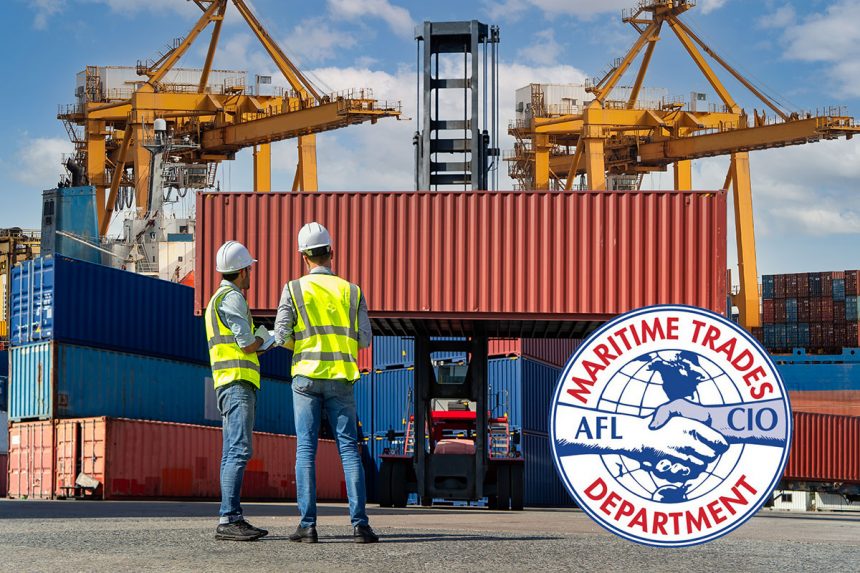Meeting during a time when some are calling for sharp cuts in government spending despite the obvious needs to the nation’s infrastructure, members of the MTD Executive Board pledged to work to gain proper funding of vitally important maritime programs.
As the board noted in several statements during its 2013 winter meeting in Buena Vista, FL, not only do these programs generate important economic benefits—middle-class jobs with decent benefits as well as tax revenues for the federal, state and local governments—they enhance U.S. national security interests.
- CARGO PREFERENCE: “For well over a century, the United States has adhered to a policy of ensuring that a portion of the goods bought and paid for with taxpayer dollars should be transported on American ships with American crews.
“America‘s cargo preference laws are critical to the national and economic security. They help maintain a ready and available pool of U.S.-citizen seafarers who have crewed vessels on missions that have done everything from providing food to hungry people around the world through the P.L 480 “Food for Peace” program, to bringing the bullets, blankets and butter to our troops in harm’s way, to helping boost economic growth by carrying cargoes financed by the Export-Import Bank.”
While noting consistent bipartisan presidential support since the Eisenhower administration, “cargo preference laws are today under fierce attack from a variety of opponents whose ultimate goal is to slash the percentage of food aid cargoes U.S.-flag vessels can transport. One such assault occurred during the summer of 2012 within the surface transportation bill.”
The MTD and its affiliated unions are fighting back and supporting new, bipartisan legislation to reverse “the ill-conceived cuts to American jobs, and keeping the Stars and Stripes flying on the high seas.”
- MARITIME SECURITY PROGRAM: The MTD Board noted the value of the MSP: “Military planners and U.S.-flag shipping companies can prepare for future contingencies with the full knowledge that the MSP will be available through 2025.”
The MSP has proven its worthiness during the conflicts in Afghanistan and Iraq The statement added, “Military leaders and elected officials continue to praise the program as cost effective and vital for national security.”
- PORT MODERNIZATION: The country’s ports are national treasures. As the MTD Executive Board stated, “America’s aging and congested ports could cost the country’s economy billions of dollars if they aren’t supported with long-term infrastructure improvement plans.
“A bipartisan coalition of elected officials known as Building America’s Future Education Fund are among those calling for federal action to ensure America’s ports remain reliable and able to handle expansions in the country’s import and export of good.”
The group’s co-chair, former Pennsylvania Governor Ed Rendell, pointed out the decline in the nation’s infrastructure was punctuated by World Economic Forum report showing the U.S. had gone from number 1 in the world in 2005 to a current ranking of 14.
The Society of Civil Engineers is reporting “a nearly $16 billion investment gap in meeting the needs of our nation’s ports and inland waters.” Additionally, the Lakes Carriers’ Association has pointed out that more than 17 million cubic yards of sediment is clogging Great Lakes ports and waterways and adversely affecting commerce.
“This problem is exacerbated by the fact that the federal government has not used the cargo tax revenue it specifically collects to fund port modernization. The Harbor Maintenance Trust Fund … is currently sitting on a $6 billion surplus, an amount that grows every year. That money could—and should—go toward dredging and other port modernization projects.”
- TITLE XI SHIPBUILDING LOAN GUARANTEE PROGRAM: As numerous military officials and defense experts have noted, the U.S. shipbuilding industry generates many important benefits. But the industry is experiencing a crisis: “Many U.S.-flag containerships—among others—are rapidly approaching the life expectancy for vessels that play the deep seas.
“The American’s fleet needs to be rebuilt, renewed and recapitalized. And the best way to start this process is for Congress and the administration to revive the Title XI Shipbuilding Loan Guarantee Program.
“Title XI allows companies who build in U.S. shipyards to have access to low-cost capital. Since the program was revised as part of the Defense Reconversion Act of 1993, studies have shown that for every dollar invested in Title XI, it generated $20 worth of economic activities.
“Unfortunately, Title XI has received only minimum appropriations to cover its administrative costs. In addition, previously generated dollars for shipbuilding were returned the federal treasury because the Maritime Administration failed to approve applications within the required time frames.
“Reinvesting in the Title XI program would provide badly needed jobs for American workers in shipyards around the country. It would reinvigorate the U.S.-flag merchant fleet.”

